
In a produce store in Sardinal in Carrillo, a young woman no more than 23 years old says that the results of the elections in the canton surprised many people. Three days have passed since people cast their votes and she’s still thinking about that victory, in which a woman ousted the National Liberation Party (Spanish acronym: PLN) from Carrillo’s mayor’s office.
“Normally Liberation is the most popular and people think that a woman can’t govern,” she says with a slight tone of indignation at how history has placed men in the majority of leadership positions.
Sardinal is the only one of Carrillo’s four districts where the Social Democratic Progress (Spanish acronym: PSD) candidate, Diana Méndez, had the majority of support.
Although she only won one of the districts, she accumulated enough votes to win the canton against PLN’s candidate, Luis Carlos Rivas, current second vice mayor and trusted advisor to Mayor Carlos Cantillo, who has been in power for almost two decades.
A large part of PSD’s victory took place just a few meters from the produce store, in the very heart of the coastal district, where Diana Méndez’s brother and pharmacist colleague opened the first pharmacy in the area.
But since he died from COVID-19 in 2022, Méndez and her family have taken over the reins of the store. It’s a small place, going almost unnoticed if it weren’t for the subtle sign that says “Pharmacy” outside the business.
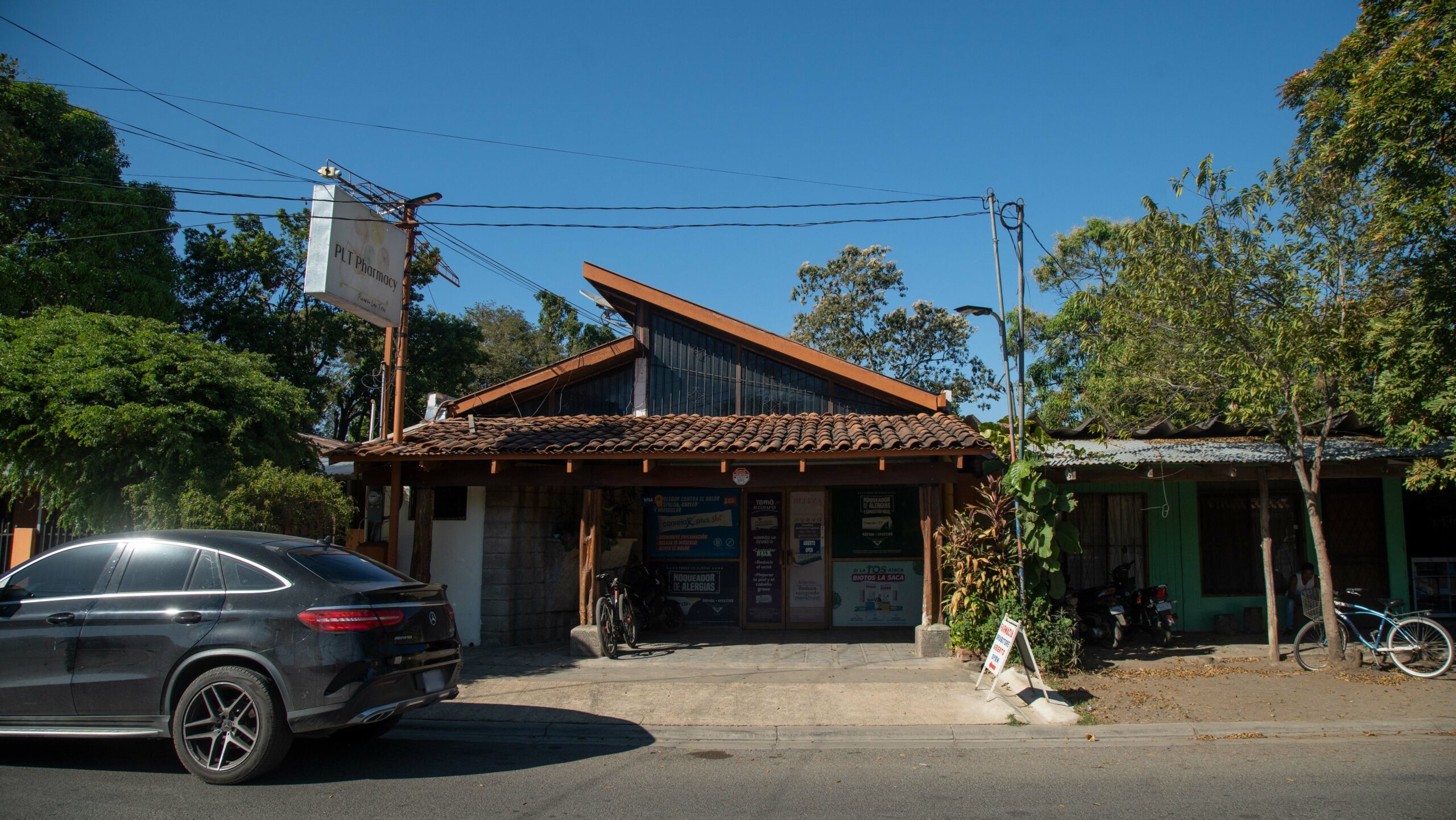
In the mid-90s, the brother of mayor elect Diana Méndez opened the first pharmacy in Sardinal, a district of Carrillo. “When [my brother] died, we saw that the community loved him very much. There were no pharmacies in El Coco or Playa Hermosa 27 years ago and all those people went up to Sardinal,” she says about how her brother planted a seed so that she too would be recognized in the community.Photo: Rubén F. Román
Although Méndez is now taking office for the first time as a publicly-elected official, her campaign team gave a lot of importance to her professional title: Dr. Méndez Masis. That’s what they called her and they continue to call her.
She wants a positive change for the town after 20 years of practically the same leadership, and she achieved all this by walking, showing people commitment,” says Méndez’s husband, Mario Pizarro, behind the pharmacy display counter.
Lorena Rivas, a Nicaraguan who has lived in Sardinal for so many years that she’s lost count now, perceived this. Although she couldn’t vote, she was informed about the electoral process.
“If the other party remained, it was going to be the same,” she says, sitting in the shade of a tree in the town park. “They are doors to new opportunities and she has a very nice way.” That’s how she felt when Méndez and her team went around the community from house to house asking for the vote, including hers.
“I’m very happy because Liberation had been here in Filadelfia for 18 years and didn’t help the small towns,” Yanil Cascante, a native of the district of Belén who voted for PSD, had told us an hour earlier in Filadelfia. “She is or she was a doctor at the [Social Security] Fund and she’s humble and very good.”
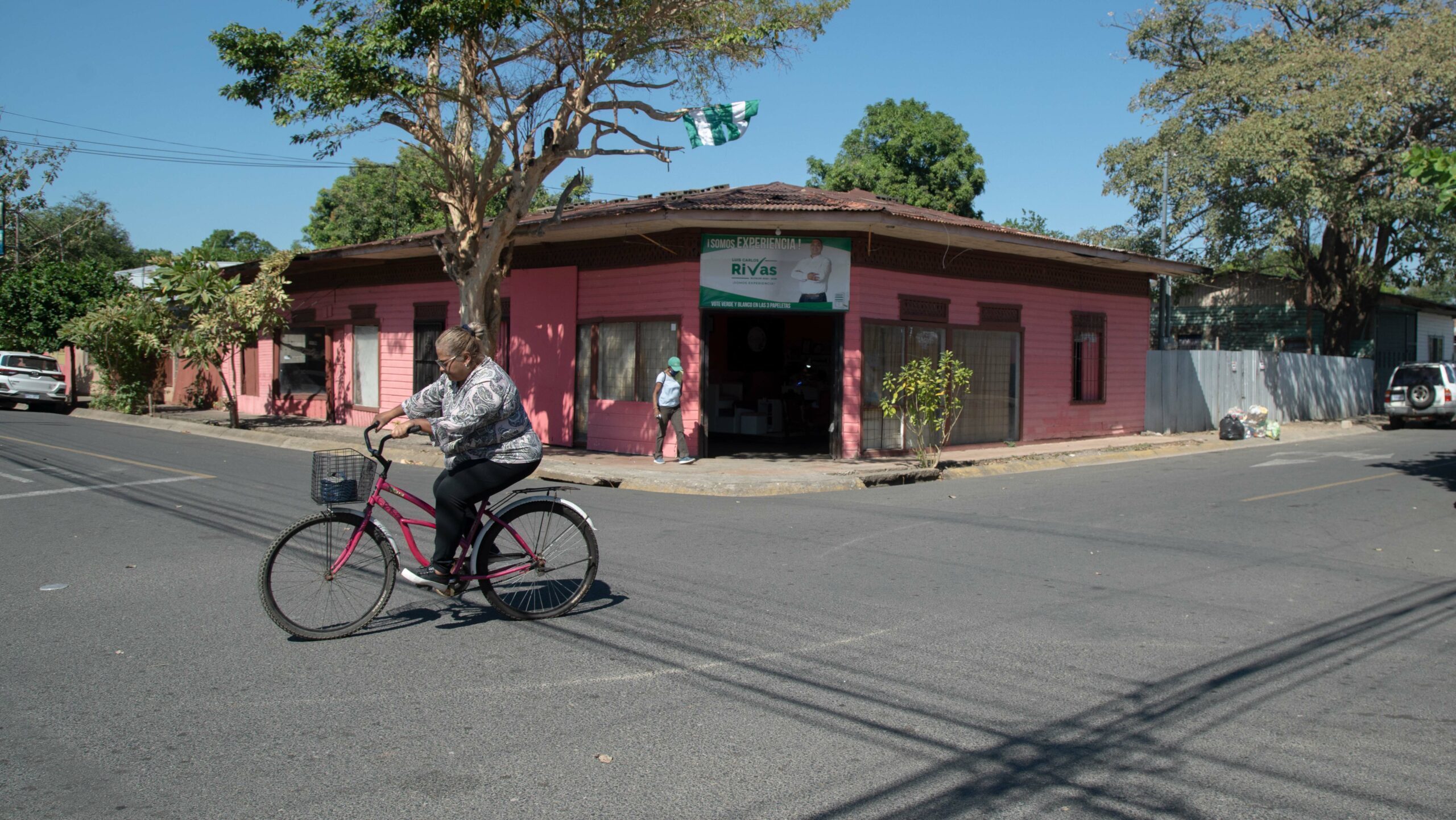
In Filadelfia, the main town in the canton of Carrillo, neither party had noteworthy banners. The sign for National Liberation candidate Luis Carlos Rivas stood out on a nail salon on a corner near the municipal offices.Photo: Rubén F. Román
Rubbing shoulders to clear the field
Starting in May, Méndez will become Carrillo’s first female mayor. Women also triumphed for the first time in Tilarán with Katherine Alfaro from PLN and in Hojancha with Verónica Campos, with the Social Christian Unity Party (Spanish acronym: PUSC).
Of the three, Méndez is the one who is entering politics for the first time. The other two women elected already have municipal management experience. Alfaro has been the vice mayor of Tilarán since 2020 and Verónica Campos was vice mayor since 2016 with the Citizen Action Party (Spanish acronym: PAC). In January, she assumed the role of mayor after the former leader, Eduardo Pineda, retired.
Before them, only five women had held the position in the province since 2000 and only during one term (2016-2020) were two elected simultaneously.
To researcher and political analyst Eugenia Aguirre, Méndez’s case is the exception, and she points out that we must not overlook that the vast majority of women elected as mayors have a political background.
“There are no new figures arriving. The women who run for mayor have a lot of experience; only six of them in the global total don’t have formal political experience,” she explains.
Until now, the norm was that female figures were relegated to second or third place, which is why many women only reached the position of vice mayor.
“More than half [in the entire country] have served as vice mayors, council members or acting mayors due to the resignation of mayors, and that gives them a lot of legitimacy.”
For Hojancha’s newly elected mayor, Verónica Campos, her career path determined almost everything.
In Hojancha, Mr. Eduardo Pineda had three consecutive terms. The people showed satisfaction with him as mayor, and as I have been with him in the last two terms working shoulder to shoulder, it gives me experience in the municipal regime,” she thinks.
“People kept the flags and saw the people: Eduardo as the ideal candidate and his work team to work within the municipality. Now I became a candidate and people see the person and they keep the flag and they see the best option or government plan,” she adds.
This is, in fact, the moment in Guanacaste’s and Costa Rica’s history in which more women have been simultaneously elected as mayors, an achievement safeguarded by the horizontal gender equality established for the first time in these elections, which required political parties to equalize the number of mayoral candidates among men and women.
“Gender equality totally changed the electoral offer,” says Aguirre, who summarizes it like this: “More women manage to reach positions when they even manage to be nominated, because previously it was difficult for them to be supported within the [party] groups.”
The requirement did not mean that the women’s nominations were easy. For Méndez, it involved fighting side by side in her own group to demonstrate her ability within the party. Since the 2022 national elections, she has taken a leading role in the canton as campaign coordinator for the victory of President Rodrigo Chaves.
“It seems to me that it’s very difficult for women to make inroads because we live in a patriarchal system and men are positioned in politics. They have held those places for decades,” the mayor elected by Carrillo tells The Voice in a meeting room at the Condovac La Costa Hotel, where she welcomed us three days after the elections.
“I feel that there was structural gender violence, a merciless attack. Within the same team, there were people, sympathizers or party members who wanted to follow the same pattern: that a woman cannot do this, or that she cannot do that,” says Méndez.
More is demanded from women
In the room where we talked, there was a table with sandwiches and on the table, eight glasses with water and ice ready for the meeting she had after talking to The Voice. To dedicate herself to the campaign with victory in sight, she took vacations from her job in the Carrillo Health Area.
In preparation for assuming her position, she is taking on an extremely active role in the community. She spends her days in team meetings and participates in public events. Last week, she participated in the inauguration of the school year with President Rodrigo Chaves, at the school in Filadelfia.
“We are already preparing for the transition of government, to make sure of how everything is: review how the administrative part is, the human resources and assets, how the supply is,” she says. “So that later, they don’t tell me that something was lost that wasn’t there.”
Many believe that to be a woman in politics, you have to be brave. This is what people have told Verónica Campos.
After the elections were over, three senior citizens approached me to tell me that I’m brave for being a woman, young and staying in politics,” she says.
“I have always admired your intelligence, but I didn’t vote for you, I couldn’t. It was very difficult for me to see you there, but you have demonstrated to me that you are very brave,” she says someone else told her recently. “I translate that ‘to see you there’ and that ‘brave’ into what it is to see a woman there.”
Another aspect that promotes women’s participation in politics is family support. When household chores are distributed and men take on the work that the home demands in a co-responsible manner. In that way, women have more time and energy to participate in political and public life.
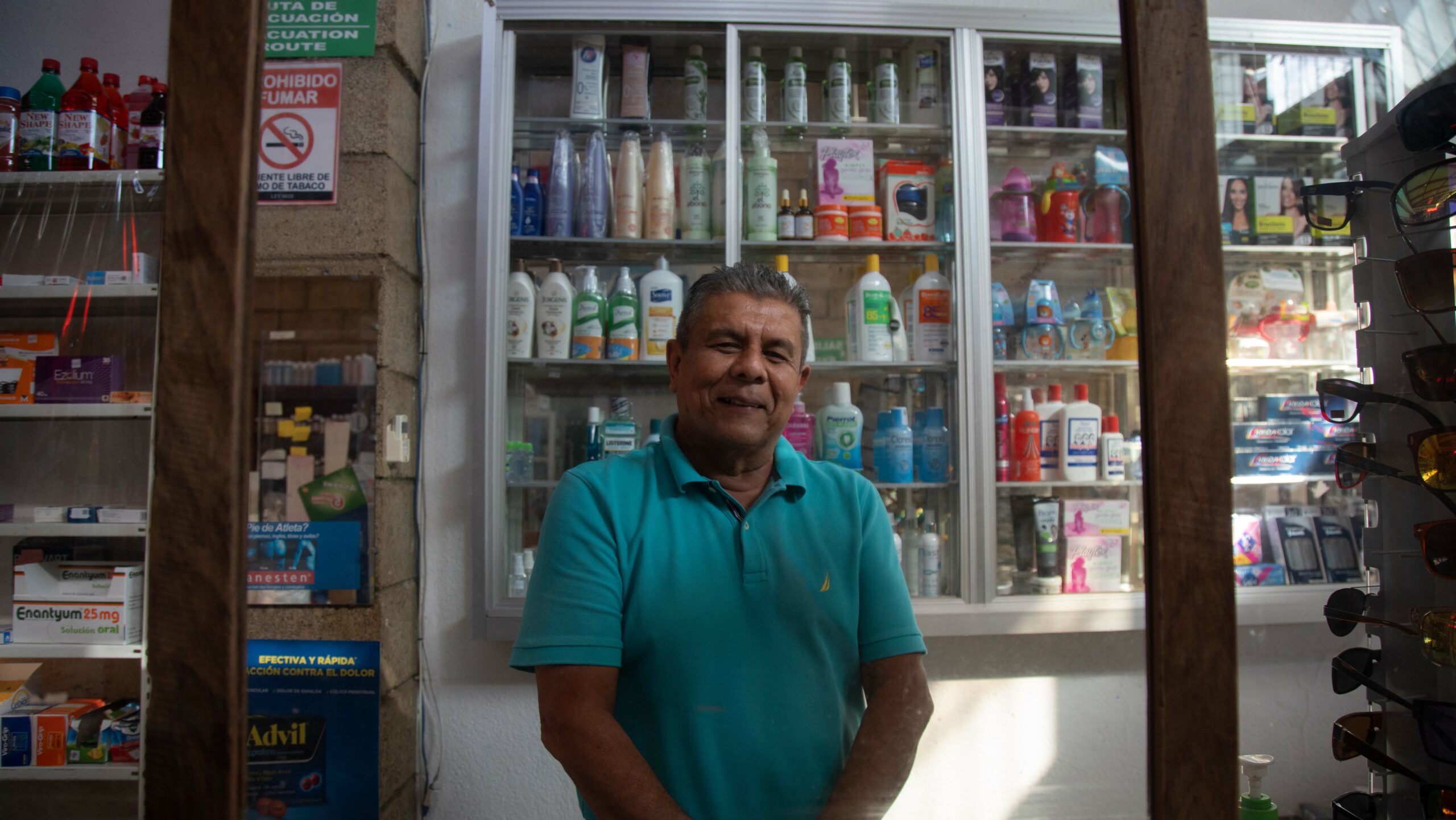
Three days after PSD’s victory in Carrillo, Méndez’s husband, Mario Pizarro, says that the victory is a mirror of the effort with which Méndez went around the town presenting her proposals. It was also noteworthy that her vice mayor, Kristian Faerrón, lives in Playas del Coco and has been a community leader in integral development associations and chambers of commerce and tourism.Photo: Rubén F. Román
For Méndez and her husband, Mario Pizarro, that was one of the keys. “It was a very big effort,” he told us in the business he runs with Méndez.
“For us women, the family aspect is very important to enter politics. We can’t carry out the projects if the family isn’t supporting,” Méndez believes, with faith that this support will be with her until 2028.


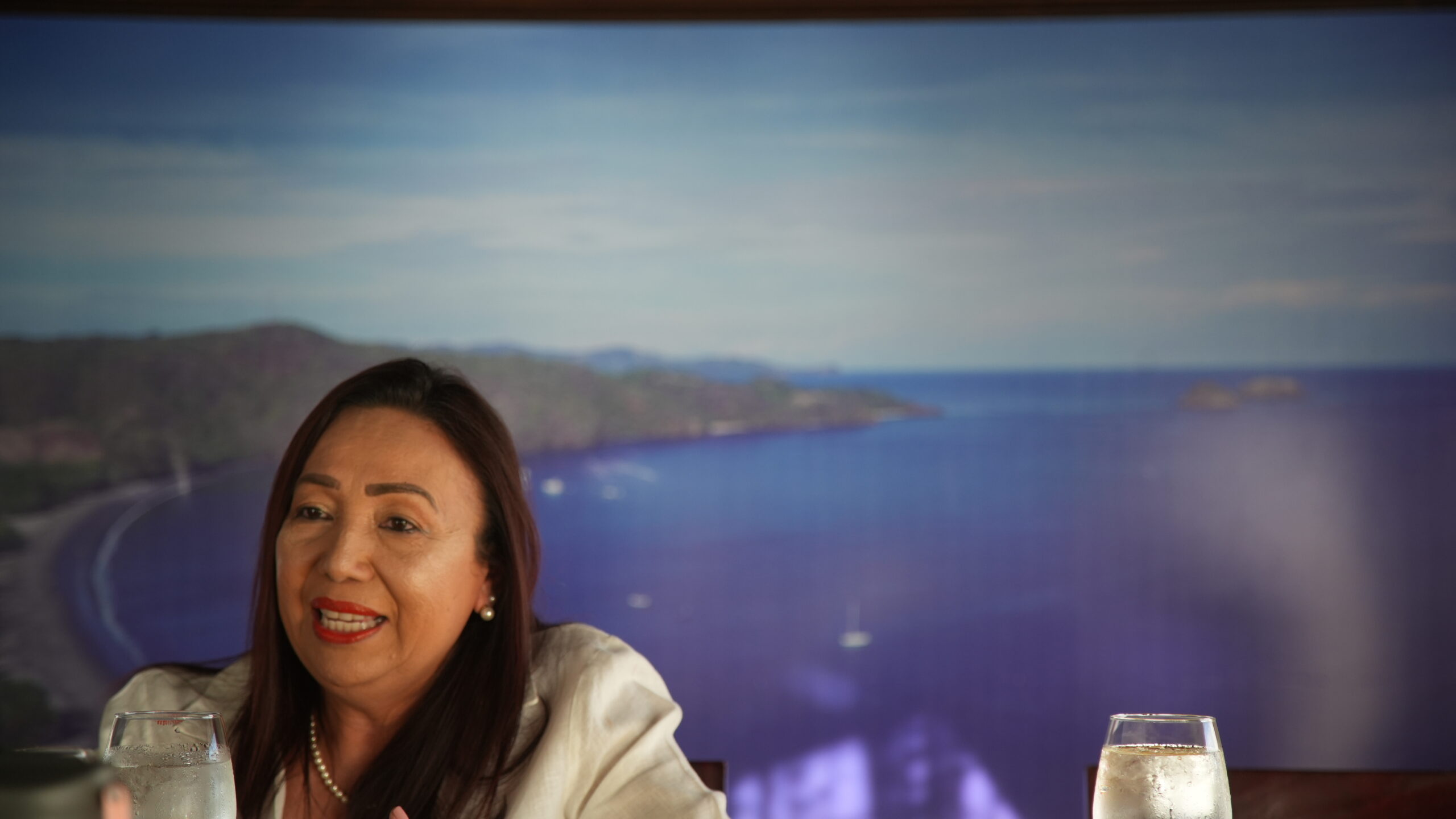

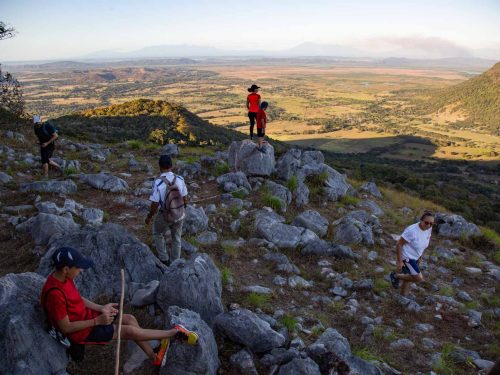


Comments